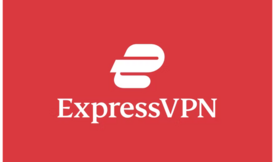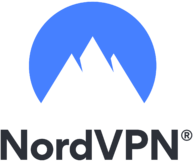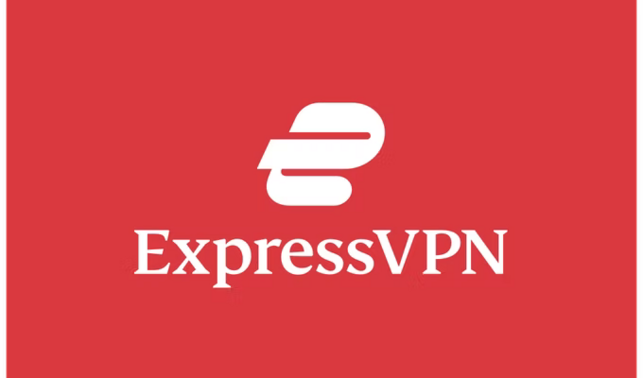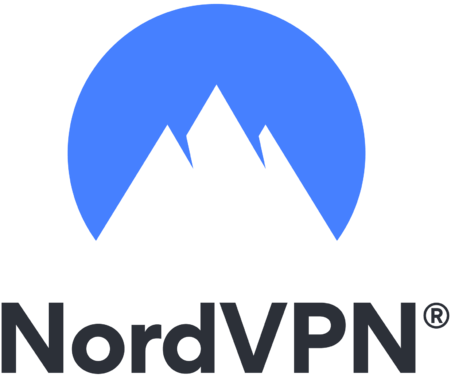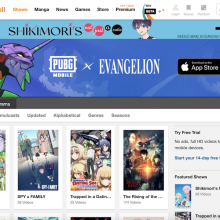Best VPN deals this week
- Private Internet Access VPN (Opens in a new window) — $2.11 Per Month + 3-Months Free (82% Off 2-Year Plan)
- PureVPN (Opens in a new window) — $2.08 Per Month + 3-Months Free (81% Off 2-Year Plan)
- NordVPN (Opens in a new window) — $3.29 Per Month + 3-Months Extra (60% Off 2-Year Plan)
- Surfshark VPN (Opens in a new window) — $2.30 Per Month + 2-Months Free (82% Off 2-Year Plan)
- ExpressVPN (Opens in a new window) — $6.67 Per Month + 3-Months Free + 1-Year Backblaze (49% Off 1-Year Plan)
- CyberGhost VPN (Opens in a new window) — $2.11 Per Month + 3-Months Free (84% Off 2-Year Plan)
Have you ever gotten the sneaking feeling that someone's creeping over your virtual shoulder while you browse the web? Don't freak out, but your gut is right: Your internet service provider (ISP) is tracking your every click to compile anonymous browsing logs they can potentially sell to advertising companies, or even cough up to government agencies in the interest of censorship. (And yes, that includes the clicks that brought you to this article.)
Connected to a free public WiFi network? You're basically inviting hackers to join in on the fun.
Your browser's Incognito/private mode only gets you so far, unfortunately — it'll clear your history, searches, cookies, and login deets, preventing other users of the same device from seeing what you've been up to, but it won't hide and secure your connection from your ISP and other prying eyes.
For actual internet anonymity, you can reclaim your privacy by getting yourself a virtual private network, or VPN.
What is a VPN?
A VPN is a service that creates an encrypted(opens in a new tab) connection between your device and a private, remote server, which hides and secures your traffic. If browsing the web like normal is like taking a naked Jeep out on the highway (where anyone can see who you are, where you're going, and what you've got in the backseat), using a VPN is like driving an armored, tinted Humvee through a secret underground tunnel(opens in a new tab).
The technology's origin story isn't well-documented, but it's believed to have emerged at Microsoft in the mid-1990s. Initially used exclusively by businesses, subscription-based VPN services for the general public starting gaining popularity about a decade ago "after a flood of security breaches," per the cybersecurity and antivirus giant Kapersky(opens in a new tab).
What are the benefits of using a VPN?
There are a number of reasons why you might want to use a VPN, the main one being simply to stay anonymous online. The process of routing your traffic through a VPN masks your internet protocol(opens in a new tab) (IP) address — the specific number that's assigned to your device when it's connected to a local network — which can otherwise reveal a surprising amount of personal information(opens in a new tab). (That includes your approximate whereabouts and the name of your ISP.) If someone decides to look up your device's IP address, they'll see your VPN server's location, not yours.
Along those same lines, using a VPN will allow you to access websites and services that may be blocked in certain places (like Netflix in China or YouTube at your school); you can choose a server in a region where your desired content is available to skirt geo-restrictions and firewalls.
Using a VPN is especially important if you regularly connect to public WiFi networks, even those that are password-protected. It's not difficult for nefarious parties to crack WiFi Protected Access 2 (WPA2) encryption — the security protocol most coffee shops, airports, hotels, and subway stations use to protect their hotspots — and exploit any network vulnerabilities vulnerabilities for so-called man-in-the-middle attacks(opens in a new tab). One of the more popular methods is known as WiFi eavesdropping, or an "evil twin" attack(opens in a new tab), where hackers set up fake WiFi access points and trick users into connecting to them.
But even the WFH crew can get some good use out of a VPN: Aside from the obvious privacy factor when it comes to confidential company information, a VPN can establish a remote connection with your office's server so you've got access to internal networks and resources from home.
It's important to note that while some VPN plans come with malware and ad blockers, those are just bonuses. The VPN itself will disguise and conceal your traffic, but it can't shield you or your device from other online threats. (We recommend picking up some separate antivirus software for that kind of protection, even if you're on a Mac.)
Hold up — are VPNs legal?
Aside from the few countries that have restricted or outright banned them (including Belarus, China, Iran, Iraq, North Korea, Oman, Russia, Turkey, Turkmenistan, and the United Arab Emirates), VPNs are perfectly legal in most of the world. But keep in mind that illegal activities like torrenting copyrighted material, buying prohibited goods, and hacking are still illegal even with a VPN. Let's not get too brazen, here.
Along those same lines, using a VPN to unblock streaming services like Netflix from a country where it's not available isn't technically against the law, but it is a violation of the company's terms of use — i.e., you may get slapped with a warning or error message if caught.
What should I look for in a VPN?
Choosing a VPN can be tricky. There are a lot of providers out there, so you should definitely do your homework before signing up for a plan. Here are some criteria we recommend considering:
Trustworthiness. Above all, you want an experienced provider with a stellar track record and a clear-cut privacy policy that guarantees your data won't be logged or collected. (Bonus points if that policy's been verified by a third party audit.) One Google search can actually tell you a lot — a good VPN won't have made headlines for security bungles or customer data leaks.
Jurisdiction. The physical location of a VPN provider matters big time. Look for VPNs based in the British Virgin Islands, Panama, Switzerland, Romania, and other privacy-friendly countries that don't fall under the jurisdiction of the "eyes" intelligence-sharing alliances: There's the original Five Eyes, a Cold War-era coalition between the U.S., the UK, Canada, Australia, and New Zealand; the Nine Eyes, an extension of the pact that includes Denmark, France, Norway, and the Netherlands; and the Fourteen Eyes, which added Belgium, Germany, Italy, Sweden, and Spain to the mix. Any VPN provider operating from one of those countries can technically be forced by authorities to collect(opens in a new tab) and fork over user data, so it's best to avoid them entirely. (That also underscores the importance of picking a no-logs VPN.)
Network size and diversity. The more servers (and server locations) you have to choose from, the less likely you'll have to share your IP address with a bunch of other users. That's great for two reasons — you've got more bandwidth to spare, and you're less likely to get detected by a streaming service that blocks VPNs. (IP addresses with heavy traffic loads are big red flags to Netflix, Hulu, Disney+, and the like.)
Customer support. Realistically, you're bound to run into connection issues at some point no matter which VPN you choose, so having easy access to a responsible, reliable support team is on the "must-have" side of things.
A VPN gets extra points in our book if it comes with any of the following security features and tools:
AES 256-bit encryption. Encryption is the process of scrambling data up into unreadable "ciphertext" that can only be decoded by authorized parties with access to a secret key or password. Advanced Encryption Standard (AES) 256-bit encryption is a super strong, military-grade encryption protocol that's effectively uncrackable.
A kill switch. In the event your VPN connection drops or gets disrupted, a kill switch will immediately disconnect your computer/phone/tablet from the internet and block all traffic, keeping your real IP address under wraps until the connection is restored.
Split tunneling. A split tunneling tool lets you pick and choose what traffic gets sent over your VPN; the rest gets routed over your local network to conserve bandwidth and prevent bottlenecks.
Multihop connections. Some providers will give you the option to connect to a multihop (or double) VPN, which encrypts your data twice by routing your traffic through two servers instead of just one for extra security.
Dedicated IPs. A dedicated IP is an IP address that's assigned to a single user (as opposed to one that's shared among multiple people). Providers usually charge a premium to add one to your VPN subscription, but it's worthwhile for better download speeds and avoiding the watchful eyes of streaming services that block VPNs.
Pro tip: Don't pick a VPN based exclusively on its performance in speed tests.
"For one thing, your internet experience will almost certainly be faster without a VPN," write the experts over at PCMag(opens in a new tab) (which is owned by Mashable's publisher, ZiffDavis). "For another, speeds depend so much on which server you use, where you are, what your network environment is like, and so on. You might find that the service that's as fast as lightning today is barely chugging along tomorrow." Factors like trust, server distribution, price, and ease of use are far more important.
That said, if you're super concerned about download speeds, upload speeds, and latency(opens in a new tab) for activities like gaming and streaming, pick a VPN with a split tunneling tool (to prioritize those high-bandwidth activities) and a large server network (to decrease the likelihood that you share a server with someone else).
Should I pay for a VPN?
We recommend avoiding most VPNs that are entirely free to use; their terms and conditions are usually total crap, or they come bundled with spyware, or the companies behind them might sell the data they're logging from your usage. (To bring up that driving analogy once more, using a free VPN is like going through a tunnel riddled with holes and hidden cameras.) True privacy on the internet comes at a cost — usually around $2 to $12 a month, depending on the length of the subscription and the number of features included.
On the plus side, many providers offer week- or month-long trial periods so you can take their VPNs for a test drive before committing to a paid plan. Keep an eye out for sales, too, especially around the holidays. We've also rounded our favorite VPNs under $4 a month.
Without any further ado, here are the best VPNs of 2022 based our research and reviews. (Note: All pricing was accurate at the time of publication.)
